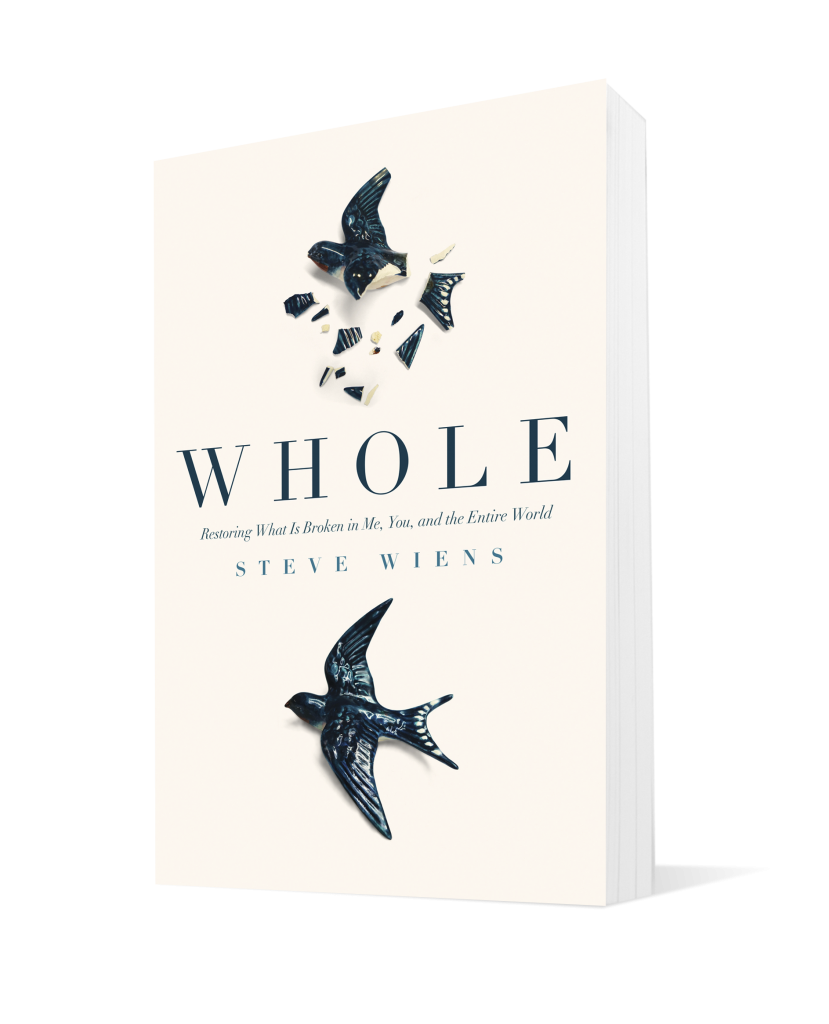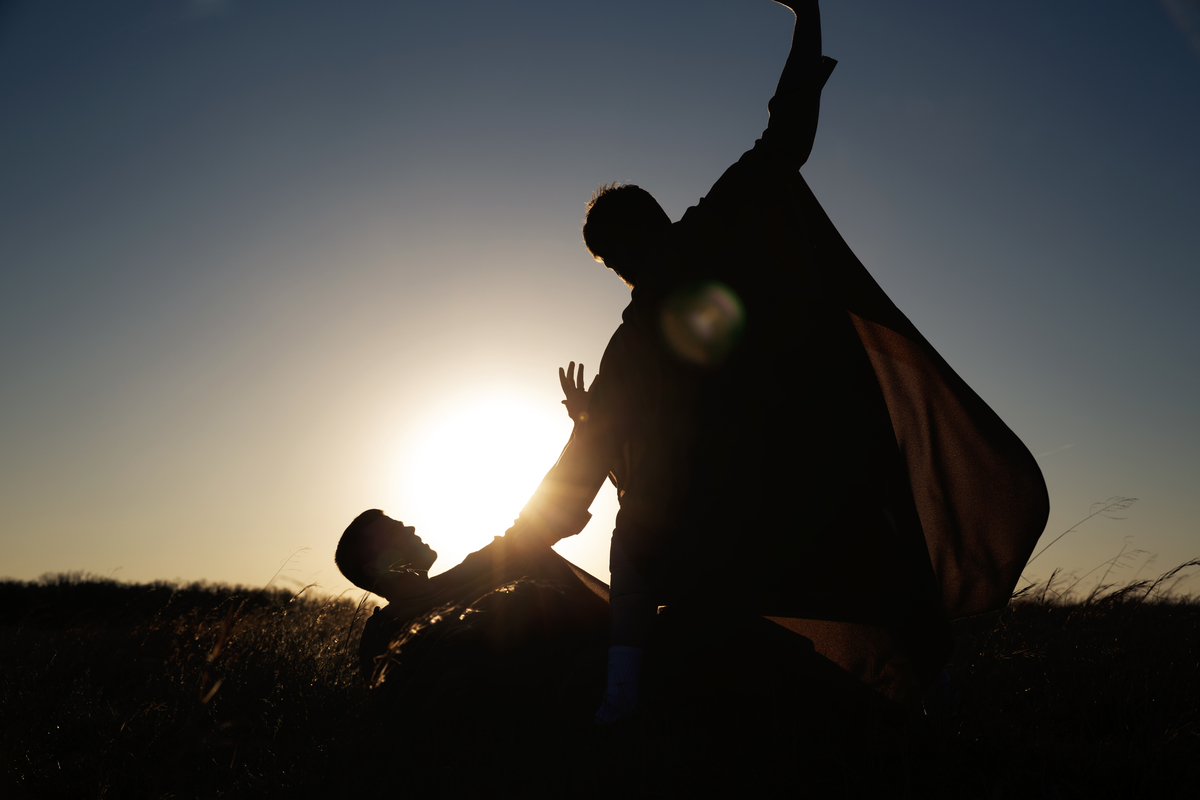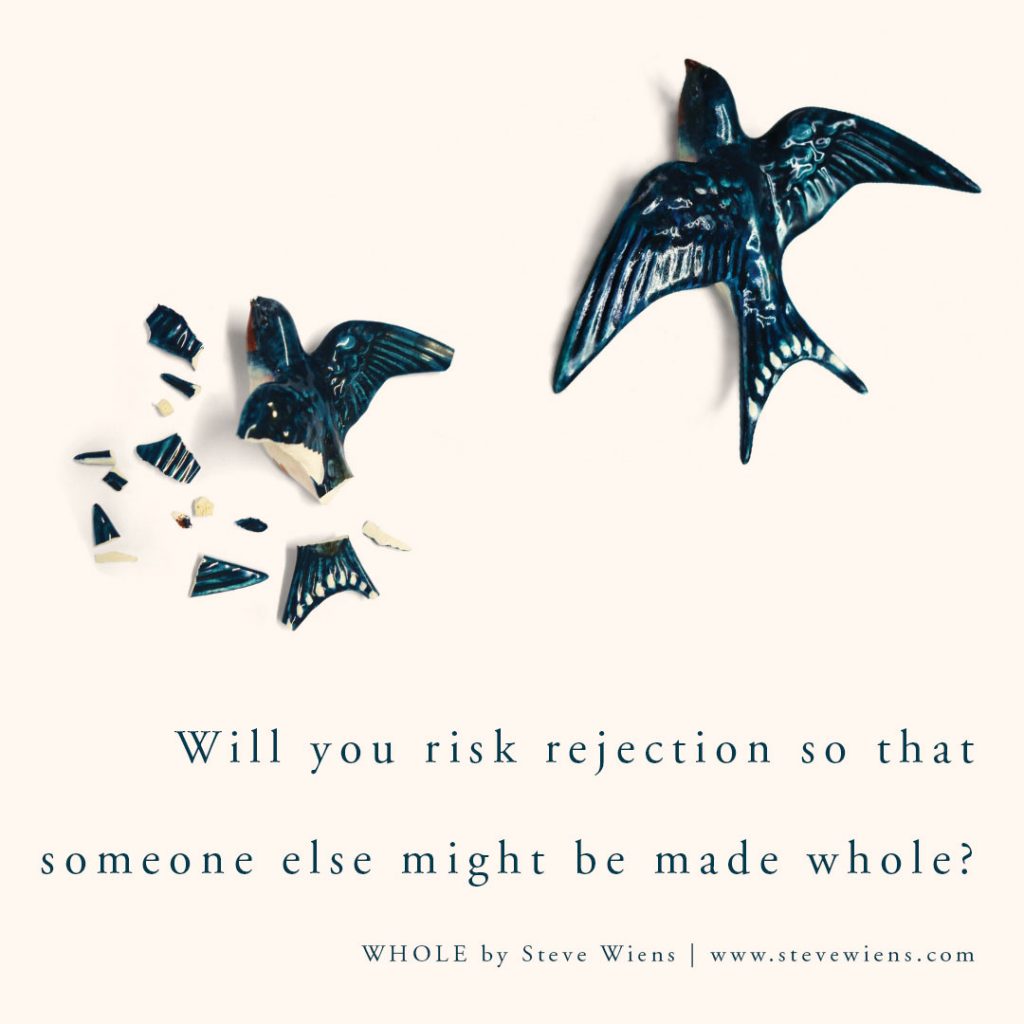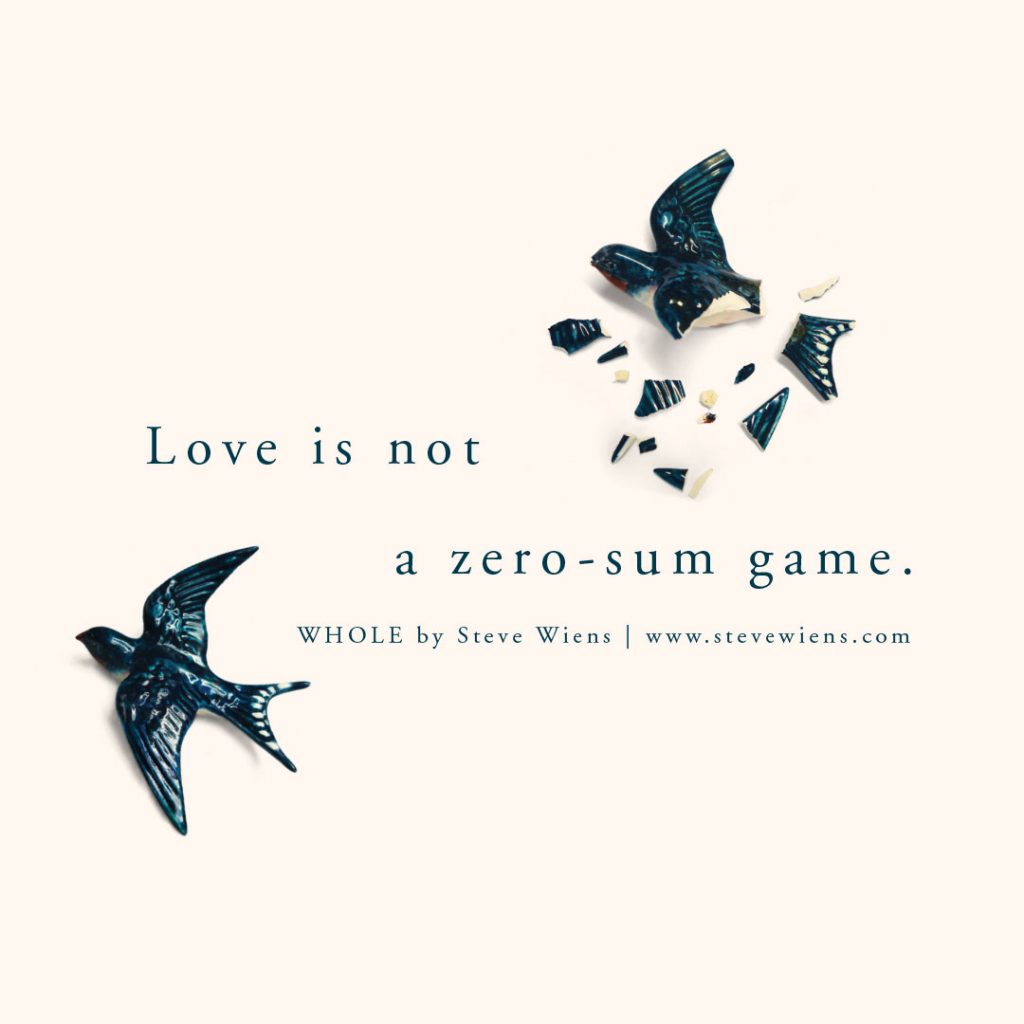“Where is your brother?” God had asked him.
Cain winced as he remembered his answer, which he had also tried to bury, but like his recurring nightmare, it didn’t stay buried because something deep within wouldn’t allow it.
“I don’t know,” he replied. “Am I my brother’s keeper?”
God never answered Cain’s question.
When a question like this is raised in the Scriptures and there’s no answer, a long conversation about it will take place, one that spans many generations, many stories, and much conflict. This is comforting, in an odd way, isn’t it? When a brother murders a brother, even in the Bible, we can’t expect that it will be resolved in a single conversation.
Cain worked the soil, growing fruits and vegetables. Abel tended sheep. When it came time to bring sacrifices to God, Cain brought “some of the fruits of the soil” as an offering. Abel, on the other hand, brought “fat portions from some of the firstborn of his flock”. So God considered both offerings, and God approved of Abel’s but not of Cain’s.
Why? This seems capricious. Is this how God will treat people from now on?
There’s some debate about why God rejected Cain’s offering while accepting Abel’s. It seems unlikely that it was about fruits and vegetables versus meat. God seemed to see something in Cain’s offering that was different from Abel’s. Cain’s name means “possession” or “to gain,” while Abel means “breath,” “vapor,” or “gentle breeze.” What does it mean that the need to possess can choke out breath? What does it mean that the need to gain something will sometimes overpower those who are gentle?
When Abel chose to give God the fat from his firstborn sheep, he gave God something that was very close to his heart. Abel most likely came to love his sheep, especially the firstborn. Abel was giving God his best—the really good stuff—but I think there’s more to this story than just sheep. Abel was also giving God something intimate. When Cain chose to give God some of the produce that he grew, he was withholding something, mistrusting God and trusting instead in the produce to provide what was needed. He was more concerned with gaining and possessing, so he gave a lesser gift.
Cain hid, while Abel risked the more vulnerable option of trusting.
What do you seek to possess or acquire that keeps you from intimacy? Where do you withhold your best—the really good stuff—because of your need to keep gaining more?
If you’re a perfectionist, you’re locking away the really good stuff until you’re sure no one will reject it. You’re attempting to gain more control.
If you’re a workaholic, you have convinced yourself that it’s okay that your kids don’t get the really good stuff from you, because they’ll be taken care of financially. You’re attempting to gain more money.
If you’re addicted to approval, you’ve hidden your true self so well that you can’t find it anymore. As more people like you, you realize that fewer people love you, because you’ve never given them anything real to love.
The particular story of Cain and Abel becomes universal when you realize that you can kill off the gentle breeze of intimacy by attempting to possess more while you give less.
I actually feel some empathy for Cain. When you start down the road of acquiring and possessing, it’s hard to turn back. In my attempts to acquire and possess admiration, I have sometimes traded being known and loved for being consumed and admired. It’s easier to write a blog post that gets hundreds of likes on Facebook than it is to risk rejection by saying the hard but true (and private) thing to someone with whom I live or work. But as I hold that emotion and turn it around for a while, an invitation shows up.
Will I risk rejection so that someone else might be made whole?
I get Cain. My desire to succeed, to win approval and admiration, feels a lot like possession. But it’s hard to be your brother’s keeper when you’re more concerned about being more successful than your bother.
When I learned to hide my disabilities, my strong emotions, and my real voice, I learned to gain success by showing how strong I was, how in control I was, how to adapt my voice to fit whatever was needed, even if it wasn’t even really my voice. I’ve learned to look after my own success, hedging my bets and hiding my true self because it might appear weak or out of control.
Am I my brother’s keeper? is a defensive question, designed to ensure that the one who asks it can remain in hiding. It’s cloaked in deceit. Cain murdered Abel, and God knew it. Cain was lying to God, but he may have even been lying to himself, unable to even see the length to which he had gone in order to gain, or acquire, for himself.
This story of the first brothers—and this word keeper—is the beginning of an arc that shoots all the way through the Hebrew Scriptures and the New Testament. I need to spend a few paragraphs building the foundation of that arc so that you can see how far it goes. I will describe how that arc continues and where it eventually goes in chapter 3. Interestingly, it involves another set of brothers who are asking the exact same question (Am I my brother’s keeper?).
The word translated as “keeper” is the Hebrew word shamar, which means “to keep, guard, watch over, tend, or save a life.”
The first usage of shamar is found in Genesis 2:15: “The Lord God took the man and put him in the garden of Eden to till it and keep [shamar] it.”
The word translated as “put” is less like a chess move and more like a loving gardener planting a prized flower in just the right spot. The word translated as “put” is yanach, which means “to cause to rest, settle down, remain.” It can even be translated as “comforted.” God comforted them in the Garden so they could work.
So we might paraphrase Genesis 2:15 like this:
God caused the humans to be settled into the garden, where they would rest and remain. Out of that resting and remaining, they would cultivate the life that grows around them, and they would tend to that life, and guard it so that it would flourish.
Cain and Abel had the unenviable task of trying to cultivate the life that was growing around them outside of the Garden. It was hard work, and no one had tried it before. It’s always hard to go first.
Cain’s sin, I think, is that he was convinced he was playing a zero-sum game. If he gave his best—the really good stuff—away, there wouldn’t be anything left to sustain him. He believed that he had to make a choice: guard his own future or guard his brother. So he guarded his future instead of his brother’s.
Where are you, Cain? You can’t guard anything when you’re hiding.
You will guard many things in your life. Some of what you guard will cause you and others to flourish, and some of what you guard will kill off the good life that is growing in you and in others.
Am I my brother’s keeper? is a question asked by someone who believes in the law of scarcity: There’s not enough to go around, so you need to make sure you keep enough for yourself.
Have you ever ordered pizza for three people and then inwardly freaked out when you realized that you might be the person who gets only two slices? You’re polite enough not to grab three pieces right away, but you want to.
Many years ago, Mary and I were looking for a couch, and we ended up at a large outlet store. We were told what to do by some friends who had been there before.
“Get there early, because there’s going to be a huge line. Then, when the doors open, run to the back where the couches are and immediately sit on the one you like. But you’re going to have to be quick and really know what you want, because usually there are only a few deals.”

So we ran and immediately sat on a large gray sectional couch that was 75 percent off. We bought it and never loved it. We ended up giving it away a few years later.
It’s a funny story until you realize that those are the same rules most of us live by in far more important matters than choosing couches.
If you believe that life is a zero-sum game, you’ll work hard at acquiring enough for yourself, holding back your best for sometime in the future, when there’s enough to go around. There is something terrifying about giving your best to God when you don’t know how you’ll get what you need.
And, let’s be honest: Abel gave God his best and he was murdered.
I wonder if we resist guarding our brother because it feels a lot like dying.
Actually, I don’t wonder about it, because it happened to me. My hunger to acquire almost choked out a gentle breeze.
You’ve been reading from Whole: Restoring What’s Broken in Me, You, and the Entire World by Steve Wiens. Continue reading from Whole right now. Listen to Steve on his podcast This Good Word or check out his other book Beginnings: The First Seven Days of the Rest of Your Life



